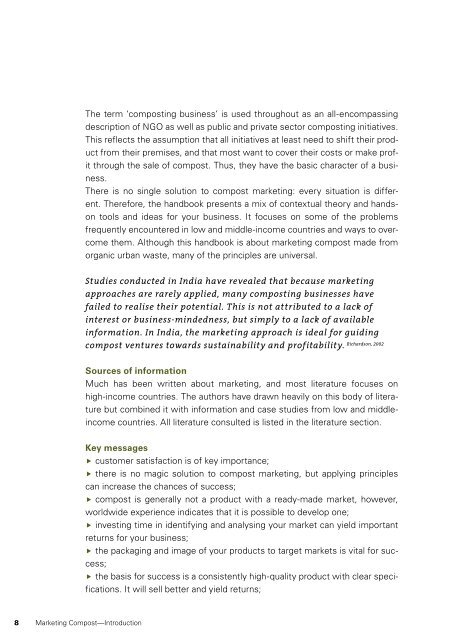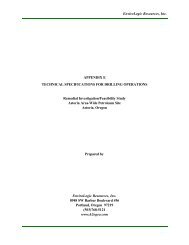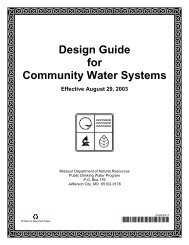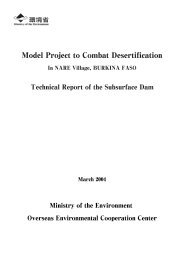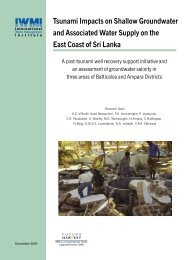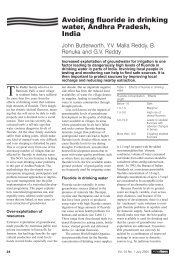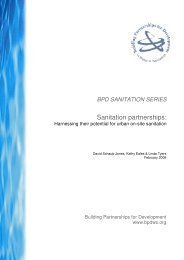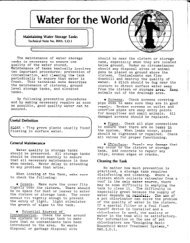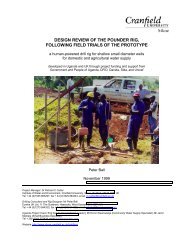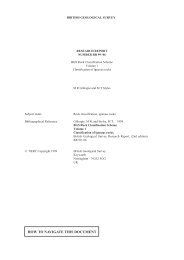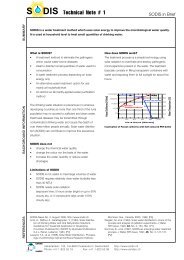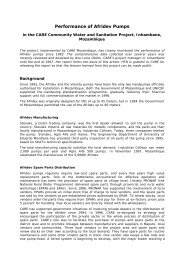Marketing Compost (EAWAG) - The Water, Sanitation and Hygiene
Marketing Compost (EAWAG) - The Water, Sanitation and Hygiene
Marketing Compost (EAWAG) - The Water, Sanitation and Hygiene
Create successful ePaper yourself
Turn your PDF publications into a flip-book with our unique Google optimized e-Paper software.
<strong>The</strong> term ‘composting business’ is used throughout as an all-encompassing<br />
description of NGO as well as public <strong>and</strong> private sector composting initiatives.<br />
This reflects the assumption that all initiatives at least need to shift their product<br />
from their premises, <strong>and</strong> that most want to cover their costs or make profit<br />
through the sale of compost. Thus, they have the basic character of a business.<br />
<strong>The</strong>re is no single solution to compost marketing: every situation is different.<br />
<strong>The</strong>refore, the h<strong>and</strong>book presents a mix of contextual theory <strong>and</strong> h<strong>and</strong>son<br />
tools <strong>and</strong> ideas for your business. It focuses on some of the problems<br />
frequently encountered in low <strong>and</strong> middle-income countries <strong>and</strong> ways to overcome<br />
them. Although this h<strong>and</strong>book is about marketing compost made from<br />
organic urban waste, many of the principles are universal.<br />
Studies conducted in India have revealed that because marketing<br />
approaches are rarely applied, many composting businesses have<br />
failed to realise their potential. This is not attributed to a lack of<br />
interest or business-mindedness, but simply to a lack of available<br />
information. In India, the marketing approach is ideal for guiding<br />
Richardson, 2002<br />
compost ventures towards sustainability <strong>and</strong> profitability.<br />
Sources of information<br />
Much has been written about marketing, <strong>and</strong> most literature focuses on<br />
high-income countries. <strong>The</strong> authors have drawn heavily on this body of literature<br />
but combined it with information <strong>and</strong> case studies from low <strong>and</strong> middleincome<br />
countries. All literature consulted is listed in the literature section.<br />
Key messages<br />
customer satisfaction is of key importance;<br />
there is no magic solution to compost marketing, but applying principles<br />
can increase the chances of success;<br />
compost is generally not a product with a ready-made market, however,<br />
worldwide experience indicates that it is possible to develop one;<br />
investing time in identifying <strong>and</strong> analysing your market can yield important<br />
returns for your business;<br />
the packaging <strong>and</strong> image of your products to target markets is vital for success;<br />
the basis for success is a consistently high-quality product with clear specifications.<br />
It will sell better <strong>and</strong> yield returns;<br />
<br />
<strong>Marketing</strong> <strong>Compost</strong>—Introduction


